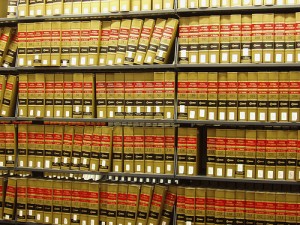Now, I’m writing to you from Chinese SAR Macau where the 4th conference of the International Association of Anti-Corruption Authorities (IAACA) ended yesterday. With governments having taken the critical step taken of adopting an UNCAC review mechanism last year in Doha, I was curious to know just how this would impact on this forum.
Independent anti-corruption authorities have an important role to play in preventing and punishing corruption on a national level. They have multiple tasks in their countries, from serving as a watchdog for local government entities, establishing and disseminating ethics rules and regulations for government employees, to developing effective anti-corruption policies and ensuring that officials who breach these rules are held to account investigating and bringing cases against corruption offenders. But corruption does not stop at the national borders. Cross-national issues are more and more the daily challenge in investigating corruption cases. The International Association of Anti-Corruption Authorities was created in 2003 to assist these anti-corruption authorities and promote the effective implementation of the largest international anti-corruption convention – the UN Convention against Corruption (UNCAC).
Gathered here at the Grand Hyatt were about 700 participants from 155 countries including directors of national anti-corruption agencies, Attorneys General, Justice Ministry officials, Bureaux of Investigation and many more – a largely governmental meeting with very few NGOs present as compared to the long-established International Anti-Corruption Conference (IACC), a multi-stakeholder meeting that will convene for the 14th time next week in Bangkok.
One of the key arising issues in fighting corruption across borders is Mutual Legal Assistance (MLA) – an agreement between two countries to gather and exchange information to enforce public or criminal laws. Thus this conference had an all-day workshop on the subject of MLA. Here I’d like to share with you a couple of the discussion points and insights I found most interesting in that workshop:
- The Romanian Chief Prosecutor of the National Anti-Corruption Directorate provided details about an interesting football fraud case involving money laundering in the British Virgin Islands, a Dutch shell company, false invoices – the complete programme. He detailed which jurisdictions provided mutual legal assistance for solving the case. His conclusion: If the anti-corruption provisions stipulated by the UNCAC had been implemented, the barriers could have been eliminated.
- The Director of the Kenyan Anti-Corruption Commission delivered a passionate statement about the complicity of northern countries in facilitating the taking of corruption proceeds out of Africa and harbouring the assets stolen from developing countries. He asked: “Why don’t we do what must be done? Why do we deal with symptoms not the problem?” He proposed that banks in safe havens should be blacklisted.
- A Swiss Federal Prosecutor from the Office of the Attorney General of Switzerland recommended that law enforcement authorities spontaneously provide each other with information under Article 46(4) and(5) of the UNCAC – i.e. without waiting to be asked! She also stated vehemently that bank secrecy has never been an obstacle to criminal investigationsin Switzerland if there is dual criminality. Other interesting observations she made: Numbered accounts provide no additional protection against prosecution. And Swiss MLA can take 6-8 months if the targeted person files an appeal.
- Denmark’s Deputy Public Prosecutor noted wryly that while Danish companies did not bribe at home they were busy doing so in developing countries.
- As a country with limited resources Samoa has a partnership with New Zealand for investigations and prosecutions, helping them in obtaining evidence, locating suspects and witnesses.
- Finally, Ghana’s Attorney General and Minister of Justice talked very passionately of her country’s problems in obtaining MLA from developed countries. In her view, MLA has been held up because of influential multi-national enterprises and complicit governments in developed countries. She said the capacity of those players to influence financial markets and the global media should not be underestimated. Ghana’s newly-found oil makes the country a prime target of the “predators and vultures that come to rape Africa”.
With a new board of IAACA elected at the meeting, the main closing speech was delivered by the new Chair of the organisation, the Prosecutor General of the Supreme People’s Procuratorate of China Mr Cao Jianming, who outlined IAACA’s new work programme including promoting an effective implementation of the UNCAC. Vice Chair Eduardo Vettere followed up with a reminder of the importance of additional ratifications and accessions to UNCAC (eg. India, Japan, Germany, Thailand) to enable countries to work together more effectively on the basis of a common framework. Quoting the Prime Minister of Malaysia, Vettere said that anti-corruption efforts are “not only a moral imperative but a prerequisite to survival” referring to how multitudes of people experienced “the despair of knowing that living honestly is perfectly useless.”
I think this is something to remember when we discuss the sometimes technical details of a conference!
The 5th IAACA conference will take place in Marrakesh, Morocco in October 2011 in conjunction with the 4th UNCAC Conference of States Parties.
















 Connect with us on Facebook
Connect with us on Facebook Follow us on Twitter
Follow us on Twitter